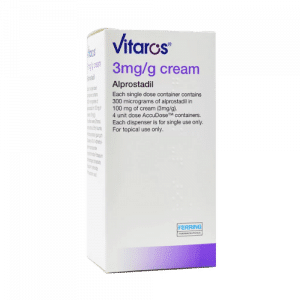
Xenical (Orlistat 120mg): Xenical is a powerful weight loss aid for adults with a BMI over 30, effectively reducing the absorption of fat with its active ingredient orlistat. Ideal for those committed to a healthier lifestyle through balanced diet and exercise, Xenical supports your weight loss journey by blocking about a third of the fat in the food you eat from being absorbed.
Xenical (orlistat 120mg)
£30.55 – £104.99
Product Information
Orlistat 120mg (Xenical) and orlistat 60mg (alli)
Orlistat hard capsules for taken for weight loss in adults. The active ingredient is orlistat which reduces the absorption of fat.
- Dr Fox supplies orlistat 120mg (Xenical) for people with a BMI over 30.
- Dr Fox supplies orlistat 60mg (alli) for people with a BMI over 28.
Body Mass Index
The words ‘overweight’ and ‘obese’ are medical terms, defined by body mass index, relating to the health risks from having too large fat stores. The World Health Organisation considers obesity to be a chronic disease.
The Body Mass Index (BMI) is a calculation, combining weight and height, which indicates whether a person is in the healthy or overweight zones. However, it is not a perfect tool, as muscle mass, either very muscular (e.g. athletes) or very little muscle mass (e.g. muscular dystrophy), distorts the figures. The standard BMI zones are also less applicable to many ethnic minority populations having been originally developed in white American and European men.
| Weight | BMI kg/m2 |
| Underweight | < 18.5 |
| Healthy weight | 18.5-25 |
| Overweight | 25-30 |
| Obese | 30-40 |
| Severely obese | > 40 |
BMI calculator
A better tool for assessing health risks related to excess fat is the waist size measurement, which is especially helpful when the BMI is between 25 and 35. According to NICE, men’s waist size should be below 94cm (37 inches) and women should be below 80cm (31½ inches). Again ethnicity plays a part, so these are less reliable outside the white population.
How does Orlistat help with weight loss?
Orlistat is taken with meals. Orlistat inactivates the gut enzymes needed to absorb fat from food (it is a ‘lipase inhibitor’). When taking orlistat 120mg (Xenical), about a third of the fat which is eaten passes straight on through the system and leaves the body in the stools. With orlistat 60mg (alli), a quarter of the fat eaten will pass straight through. Orlistat therefore reduces the calories being absorbed and so can contribute to weight loss.
Orlistat 120mg can also be used in some situations by people with a BMI between 28 and 30 if there are also other risk factors for weight-related illness. Discuss with your regular doctor if you think you may benefit from Xenical but your BMI is less than 30.
Orlistat can only help with weight loss if there are other lifestyle changes including diet and activity levels.
How to lose weight with Orlistat
Reducing stored fat
Our bodies are designed to store any excess food and calories as fat. This is a good thing if food supplies are scarce. However in a developed society without major food famine, there is often a tendency to eat more than our bodies actually need and so more and more fat stores are laid down.
The simple answer to losing weight is to limit food and calorie intake to less than the body requires so that the body starts to use up the stored fat. But in reality, it is often much more complex and difficult! Orlistat 120mg and 60mg capsules have been medically proven to help with weight loss by reducing the amount of fat that the body absorbs.
There is a huge industry promoting different programmes and diets to assist and encourage people with weight loss. Some are scientifically developed, some involve low-calorie replacement meal products, and some can seem very extreme! Each person needs to find the method which works best for them, but losing weight will usually involve a commitment to a lifestyle change with new healthy eating patterns and more exercise!
How to take Orlistat capsules
The capsules are usually taken 3 times a day, one capsule with breakfast, lunch, and dinner. The capsule can be taken just before the meal, with the meal, or up to an hour after the meal. The capsule should be swallowed whole with water. If a meal is missed or the meal contains no fat, then the capsule should not be taken.
If a meal is known to contain very high amounts of fat then it is best to miss out on the dose of orlistat, as there will be significant side effects.
Do not exceed the recommended dose.
How to eat when taking Orlistat
Orlistat is only effective if taken alongside a nutritionally balanced, calorie-controlled diet. Just under a third (30%) of the calories should be from fat. Fat can often be ‘hidden’ within foods and it may be easier to use a fat calculator, initially to work this out. The food, calorie, and fat intake should be spread evenly over three meals. Calorie and fat counters and diet apps may be helpful to set targets and monitor the diet.
A nutritionally balanced diet includes:
- Five portions of fruit and vegetables per day.
- High fibre, starchy foods.
- Low-fat milk and dairy.
- Small to moderate portions of protein – meat, fish, eggs, beans, lentils.
Also:
- Cut down/cut out high-fat foods, sugar, and salt.
- Don’t fry meals – grill or steam instead.
- Cut down on alcohol (high in calories).
- No snacks containing fat between meals – NO biscuits, cakes, savoury snacks, crisps.
This healthy, balanced, and calorie-controlled diet will lead to many health benefits as well as weight loss.
See also Diet plans for diabetics which are also really useful for non-diabetics, prediabetics, and anyone wanting to lose weight.
Benefits of exercise on weight loss
Orlistat helps to reduce the amount of energy (calories) going into the system, but weight loss will be more effective when combined with an increase in the amount of energy being used. Most energy is used by the body when active and is burnt off best when exercising. The easiest exercise is the simplest – walk more.
Lots of studies have shown that 20-30 minutes of walking per day makes a big difference in health. You may need to double this to assist in losing weight. As well as exercise, the World Health Organisation (WHO) also recommends limiting the amount of time spent sitting, especially in front of screens.
For further information see NHS – Benefits of exercise.
Effectiveness of orlistat
Orlistat 120mg
Several studies have shown that twice as many patients lose weight when taking Orlistat 120mg (Xenical) alongside other weight loss measures. However unless someone loses more than 5% (1/20th) of their starting weight in the first 12 weeks, then research shows that orlistat is unlikely to help overall. If weight loss is continuing, then orlistat can be used indefinitely.
Orlistat 60mg
Orlistat 60mg (alli) has been shown in trials to improve weight loss, with 2-3 times more people losing over 10% of their starting weight in 6 months. However, the research also showed that if there had been no weight loss at 3 months, then orlistat 60mg was unlikely to help.
Beyond 6 months use, the research showed less effective weight loss.
Orlistat 60mg (alli) is manufactured for sale without a prescription, and the manufacturers do not recommend using it for longer than 6 months. However, as with higher strength orlistat 120mg, 60mg can be safely used indefinitely. If it continues to work for you individually, then Dr Fox’s doctors can prescribe orlistat 60mg as an ‘off label’ medication, where doctors take responsibility for the prescribing.
Table showing 5% weight loss
Who should not take Orlistat
Orlistat should not be used in the following situations:
- Allergy to orlistat or other capsule ingredients (see patient leaflet).
- Malabsorption conditions – unable to fully absorb food from the gut.
- Cholestasis – a liver and bile duct disorder.
- Pregnancy.
- Breastfeeding.
- Under 18 years old.
Orlistat 120mg (Xenical) and Orlistat 60mg (alli) should not be used together.
Special care with orlistat
- Kidney stones may develop if you already have kidney disease.
- Thyroid hormone levels may drop.
- Fat-soluble vitamin levels (vitamins A, D, E, & K and beta-carotene) may fall. If the diet does not contain adequate fruit and vegetables, a multivitamin supplement can be taken at bedtime.
- After losing large amounts of weight, the dose of many medications may need adjusting. Consult your regular doctor after significant weight loss if you have diabetes, high blood pressure, high cholesterol, epilepsy, or hypothyroidism.
Other medicines with orlistat
Blood levels of many other drugs may be affected. If taking any of the following, discuss with your regular doctor before starting Xenical:
- Anticoagulant drugs especially warfarin.
- Ciclosporin.
- Levothyroxine.
- Amiodarone.
- Acarbose.
- HIV medication.
- Anti-epileptic medication.
- Diabetic medication.
- Antidepressants, antipsychotic medication, anti-anxiety medication.
Possible side effects of orlistat
Orlistat is not absorbed and mostly remains in the gut, so most of the possible side effects are related to the digestive system. As orlistat prevents the absorption of fat, the fat passes straight through the system and may lead to symptoms such as abdominal discomfort; an urgent need to open the bowels; flatulence (wind) with discharge; oily discharge; oily or fatty stools; or fatty diarrhoea. These side effects often settle with time and with reducing dietary fat intake.
If there is actual bleeding from the bowel, consult your regular doctor.
Headaches and upper respiratory infections are also sometimes reported.
Further information is in the manufacturer’s patient information leaflet.
Weight monitoring whilst taking orlistat
It is recommended that Orlistat 120mg (Xenical) should be stopped if you have not lost at least 5% of your starting weight after 3 months of treatment.
If weight loss is continuing, Orlistat 120mg can be safely continued indefinitely, but clinical studies have not continued beyond 4 years. If your BMI drops to between 28 and 30, Dr Fox recommends swapping from orlistat 120mg to orlistat 60mg.
The manufacturers recommend that orlistat 60mg (alli) should be stopped after 3 months if there has been no weight loss, at all. Orlistat 60mg can be bought without a prescription, and the license does not recommend use longer than 6 months in total. As with 120mg strength, 60mg can be safely used indefinitely, but the use of 60mg beyond 6 months is ‘off label’ where doctors take responsibility for the prescribing. Dr Fox does not prescribe orlistat if your BMI is below 28.
Other options to assist weight loss
Behaviour modification
As previously mentioned, weight loss and maintenance at the new weight, involves lifestyle change, in particular permanent changes to diet and exercise.
A person’s relationship with food is complex. Thinking about this will often help with making sustainable diet changes. There are many small steps which can be taken to support behaviour changes.
Relearning your relationship with food can be helped by Cognitive Behaviour Therapy (CBT), mindfulness techniques, or hypnotherapy.
Some people respond well to losing weight alongside others, with clubs and organisations such as Slimming World and Weight Watchers. There are many phone apps, websites, personal trainers, etc. – all aiming to provide more motivation to keep going.
Alternative weight loss medication
Over the years many different medications have been tried to help people to lose weight.
These included appetite suppressants such as sibutramine (Reductil) and different amphetamines. Amphetamines reduce appetite at the brain level but unfortunately, they are highly addictive medications and have many dangerous side effects including rapid heart rate, high blood pressure, and body overheating (hyperthermia). Amphetamines are no longer available for weight loss in the UK, due to their addictive potential and serious safety concerns. A potentially safer, newer amphetamine; phentermine, sometimes also combined with topiramate (Qsymia), is manufactured abroad for weight loss, but it is not available in the UK.
A combination of naltrexone and bupropion (Mysimba) is marketed in the UK as an appetite suppressant. However, due to side effect risks, Mysimba use requires careful monitoring. As an online service, Dr Fox cannot safely provide the level of monitoring needed and does not supply Mysimba. Mysimba is not available on the NHS.
Liraglutide (Saxenda injection) and semaglutide (Wegovy/Ozempic injection, or Rybelsus tablets) which were originally developed as diabetic medications are also available in the UK to treat overweight and obesity, but usually only under hospital supervision.
Bariatric surgery
Bariatric or weight loss surgery can be used in certain instances to help very obese people to reduce weight. There are a variety of operations but they all involve restructuring of the stomach itself to reduce the volume of food which can be eaten. Bariatric surgery is a serious, major surgery and it still needs to be combined with diet and exercise changes for there to be effective weight loss.
Related Products
-
Erectile dysfunction medication
Eroxon ED Treatment Gel – 4 Pack
Rated 0 out of 5£25.00 Add to basket -
-
-




